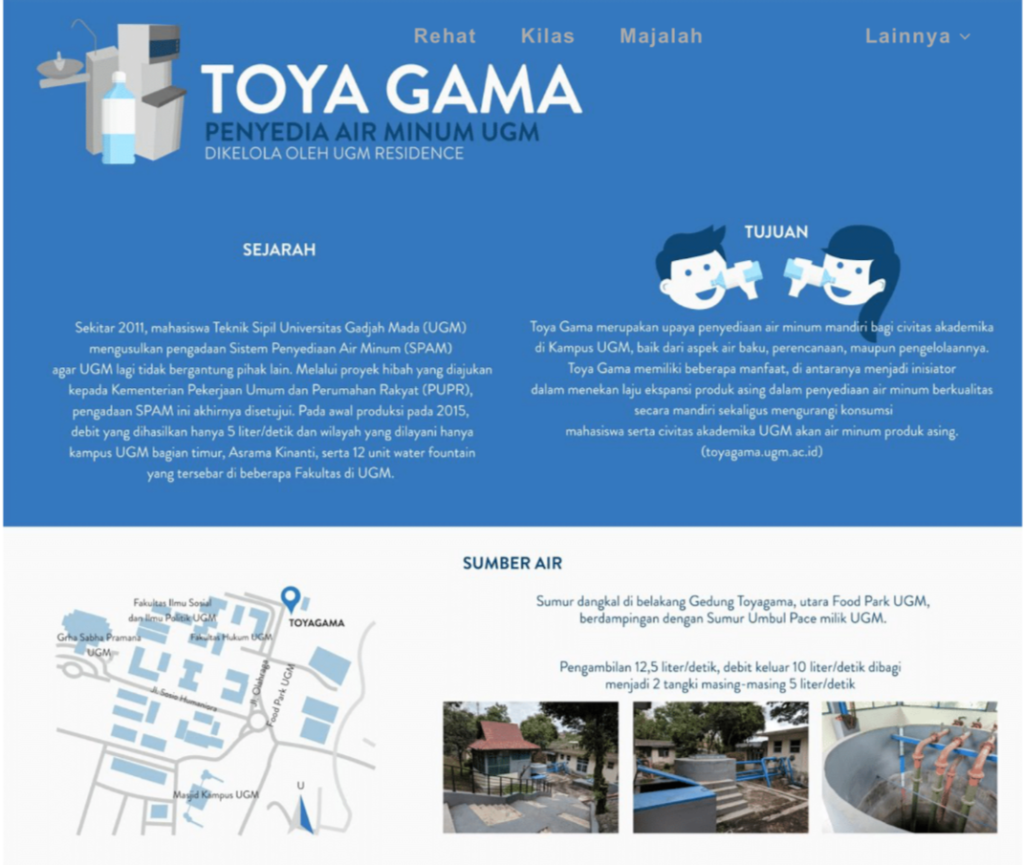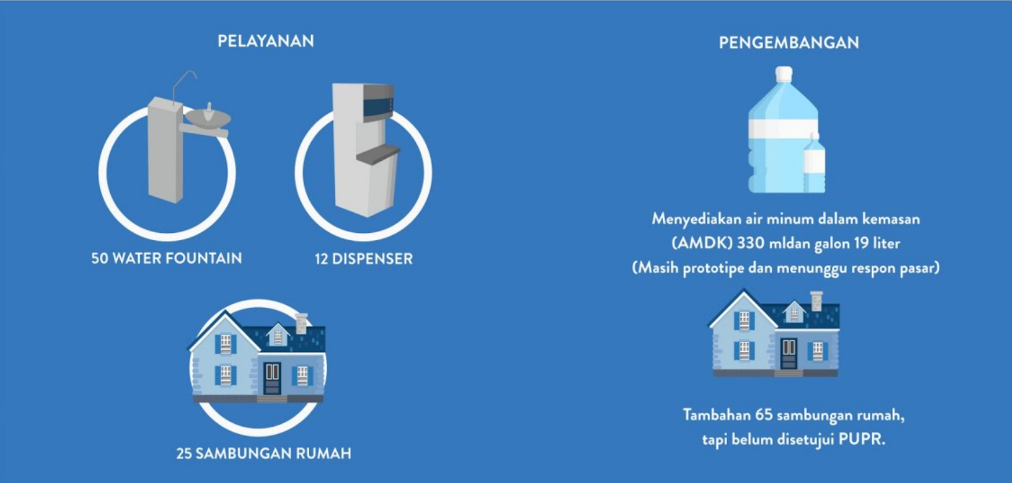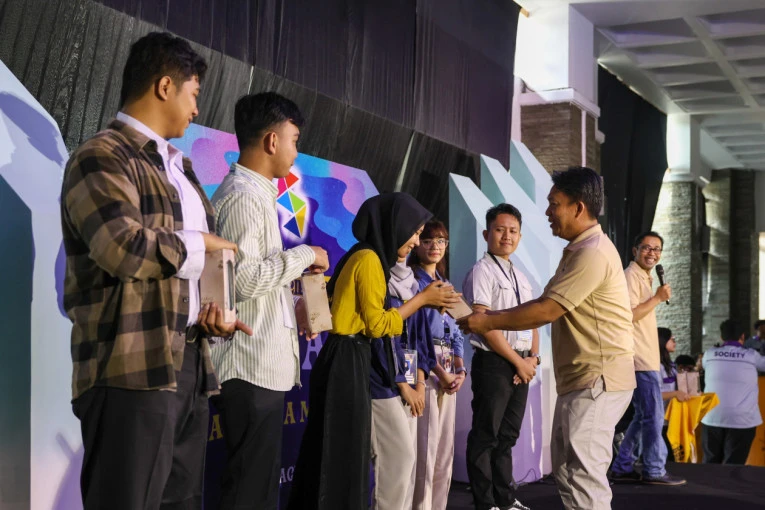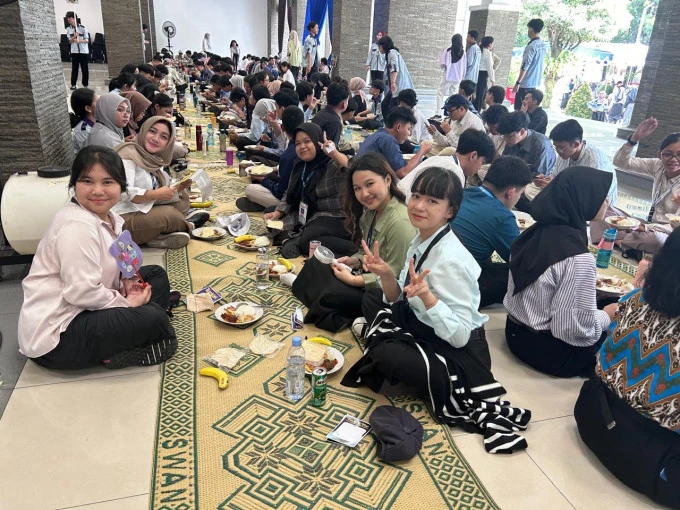UGM’s Strategic Plan for 2017-2022 explicitly emphasises the reduction of plastic waste within the university environment. This plan outlines initiatives aimed at minimising the use of single-use plastics and promoting sustainable practices among the academic community. The commitment to reduce plastic waste on campus stated in the Strategic Plan 2017-2022 is emphasised with the Sustainable Lifestyle Guideline (Circular Letter Number 1797 Year 2020). Following the commitment, several programs were designed to reduce plastic use at UGM, along with initiatives aimed at enhancing academic services and administrative efficiency. The Circular Letter Number 6627/UN1.P4/PL.00.00/2024 focuses on reducing waste in the provision of food and beverages within the university. This directive, signed by the Vice-Rector for Human Resources and Finance, aims to minimise packaging waste in food and beverage procurement processes across UGM’s departments Together, they support a more sustainable, digitally advanced, and effective campus environment.


Universitas Gadjah Mada (UGM) has implemented comprehensive policies to reduce plastic waste on campus, demonstrating a strong commitment to environmental sustainability.
Various faculties within UGM have launched specific programs to support the university’s plastic waste reduction goals. For instance, the Faculty of Economics and Business distributed 700 reusable tumblers to new students, promoting the use of personal drinking containers over single-use plastic bottles. Similarly, the Faculty of Social and Political Sciences provided 1,000 free tumblers to new students, reinforcing the commitment to sustainability. Detail information on these efforts can be found here
UGM has organised campus-wide campaigns to raise awareness about plastic waste reduction. These initiatives include educational programs, workshops, and events that encourage students, faculty, and staff to participate actively in sustainability efforts. The university also collaborates with external organisations to enhance the effectiveness of these campaigns, similar to what has been reported by various faculties (see figure below).


